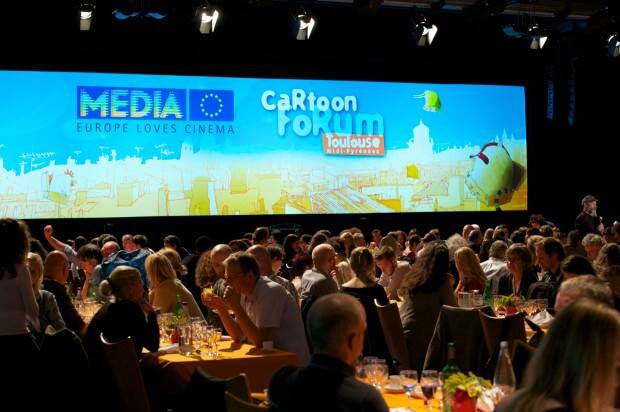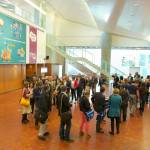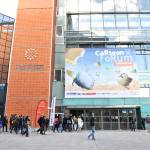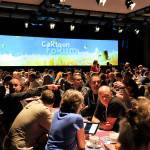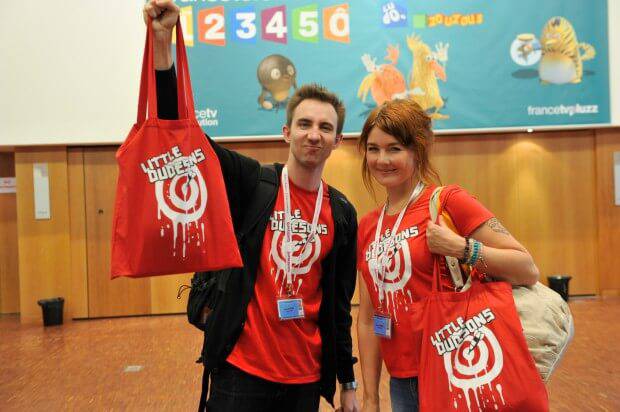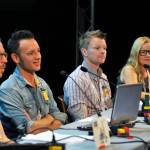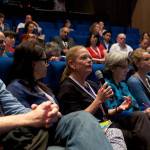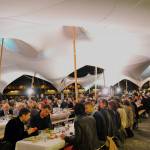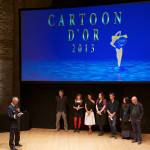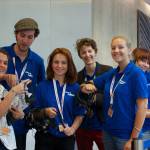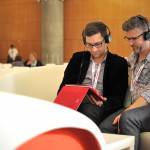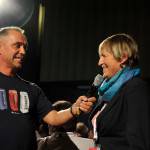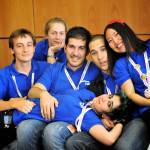CARTOON Forum 2013 Review
For four days every September, one European city is overrun by animation studios, producers, broadcasters and investors: anyone looking out for the next hot animated property for TV. This year, the event took place from the 17th – 20th September in Toulouse, marking the the second of three Cartoon Forum events that will take place in the French City.
Skwigly will be producing a ‘what’s hot’ in-depth look at some of the exciting projects that were pitched at this year’s forum in the coming weeks. In the meantime, we hope this summary will be useful for future producers and studios that are looking to pitch (or observe) in the next few years.
What is Cartoon Forum?
“Cartoon Forum is a pitching and co-production forum for animated TV projects. Producers have the opportunity to pitch their project in front of 250 broadcasters, investors and other potential partners”.
The days are comprised of back-to-back pitching sessions, networking breakfasts and business lunches, and are capped with both a ‘welcome’ and a ‘goodbye’ dinner. The pitching sessions form the core of Cartoon Forum and are split between 3 auditoriums.
Although it is fair to say that there is a lot of business being done, there is an equal amount of fun and relaxation on offer (this year saw the introduction of the 15 minute massage!). The forum is a place to see the latest shows in development, make new contacts and meet up with old ones.
This year saw a record breaking number of participants (850) from 30 countries, who came to watch 68 projects being pitched.
How is Cartoon Forum structured?
One of the things that impressed us the most was that the entire schedule ran like clockwork. We have been to our fair share of festivals and events where even a minor technical issue can throw a schedule completely off kilter, so we were naturally expecting a few overruns and shortened lunch breaks. Instead we found that there were no pitches starting late, breakfast and lunch started on time, and the pre-arranged excursions departed precisely when they said they would. However, this never once created a regimental atmosphere – rather it became the natural flow of the whole event – it all felt impressively relaxed.
Each day followed a well-structured, near identical schedule: a networking breakfast and “croissant show” where everyone was shown the trailers from the morning pitches so that they could decide which of the three simultaneously running pitches they would watch in each of the 5 slots. A much needed buffet lunch punctuated the day, giving producers and investors the opportunity to chat over what they had seen and liked so far. As dessert was being polished off, during the “coffee show” all the trailers for the last 2-3 pitches of the day played out, and we all went off to view our chosen sessions. There is not much of a breather between the last pitch and the coach leaving for the evenings specially arranged networking event.
The days are definitely long, and you will feel exhausted when your head hits your hotel pillow, but you will go to sleep having seen some wonderful new shows in the making, and possibly with a pocketful of business cards from new contacts.
The Pitching
Approximately 6 months prior to Cartoon Forum, producers are invited to submit a TV project that is in development, but it must be sufficiently polished and must NOT have all the finances raised in order to qualify. It can be a TV series or a TV special. If successful, producers (and their teams) are invited to the Forum to pitch in front of broadcasters and investors.
The pitching sessions have been described as “40 minutes to convince the buyers”, which is an adept description – you get exactly that and no more. Each session has an experienced and neutral chairperson who moderates the session, making sure the presentation runs smoothly and on time.
As the crowd shuffle through the doors, their delegate badges are scanned. At first this seemed like a simple way of keeping track of how many seats were taken – but we later discovered that this data is handed to the producer at the end of the pitch so they know exactly who was present and who they should follow up.
The pitches varied in style and presentation (we won’t go into individual pitches here – watch out for our ‘what’s hot’ article) – some were quite conservative, while others opted to boom out “Who Let The Dogs Out” as a real live pug dog ran around the auditorium. What we noticed to be a popular method was to hand out a goodie-bag to delegates as they come in. These would inevitably contain some visual materials (a book, flyer, pitch bible sample), some sweets, and perhaps a plush toy to remember to show by. One of our favourites was a bag containing a cuddly puffin and a stick of rock for the pre-school show “Puffin Rock”!
This year the Cartoon team have implemented a new idea to help producers and investors do business after the presentation – the Extra Time corner. After the pitch, the presenters are ushered out before anyone else where they can set up their artwork, puppets, or whatever in a dedicated corner ready for delegates to stop and speak to them afterwards. We thought this was a nice touch to save the producers getting rushed on stage afterwards and to ease the flow for the next pitch to begin. It worked rather well and we hope this is a feature that is kept for future years.
Aside from this year’s pitches, producers with projects from the previous year that had not secured all their financing were invited back for an informal follow up, which illustrates the additional commitment that Cartoon gives to producers.
One of our favourite pitches – The Science of Botheration (Vivement Lundi) – was the most attended pitch this year with 354. It also broke the record for the most attended pitch since Cartoon Forum began by 48 seats. Oh Brave Knight (2012) was the previous record holder with 306.
At the end of the forum it was revealed that the average cost of a show (per minute) was €10,000, while the average production time for a series was 19 months.
Networking & Events
If the pitching sessions are known as the core of Cartoon Forum, then the networking events that they arrange for all delegates come a close second. The events could be split into two types:
- Breakfasts and lunches. These take place at the forum venue and are centred around the pitches of that day. Large billboard-size posters adorn the wall – even the paper placemats are filled with shows that are being pitched over the 3 days. Delegates are invited to take their place on a long bench-like seating arrangement, ensuring that you always meet someone new at each meal.
- Evening excursions and dinners. These are much more relaxed and encourage delegates to mingle, meet new people, and often involve a little entertainment and wine! The events this year included a sightseeing tour, wine tasting at Domaine Vayssette, a late night ‘happy hour’ party, cocktails in the garden of the Auditorium Saint-Pierre des Cuisines, the Cartoon d’Or Award ceremony and a karaoke party – not to mention the welcome and farewell dinners. These events are a great way for the host city (Toulouse in this case) to show off the local sights and experiences.
The only issue one might find is the language barrier with some of the other delegates (which is to be expected as there are over 30 European countries present). Obviously, this can’t be helped, and doesn’t stop excited producers showing their projects across the table to other producers.
The CARTOON D’OR Awards were a particular highlight of this year’s forum, and you can read about the nominations and winner here.
CARTOON Team & Facilities
An overview wouldn’t be complete without acknowledging the team that worked tirelessly to give Skwigly a very enjoyable first time at Cartoon Form. It was reassuring to have a member of their team everywhere we turned, from the hotel directing us to the first networking event, to making sure we had the correct translation set on our headphones. If you are thinking about attending the Forum, or even if you have been before, you can rest assure that there will always be someone there to answer any questions, even if your French is limited to describing the items in your pencil case.
We would advise any producer who has not yet been to attend as a delegate as soon as possible – it is a great insight to see how other studios pitch, to see what is coming out on the market and it is never too soon to start networking with broadcasters and investors. And for all those who hope to take a project to next year’s forum, we wish you the best of luck and look forward to viewing your pitch next year!


